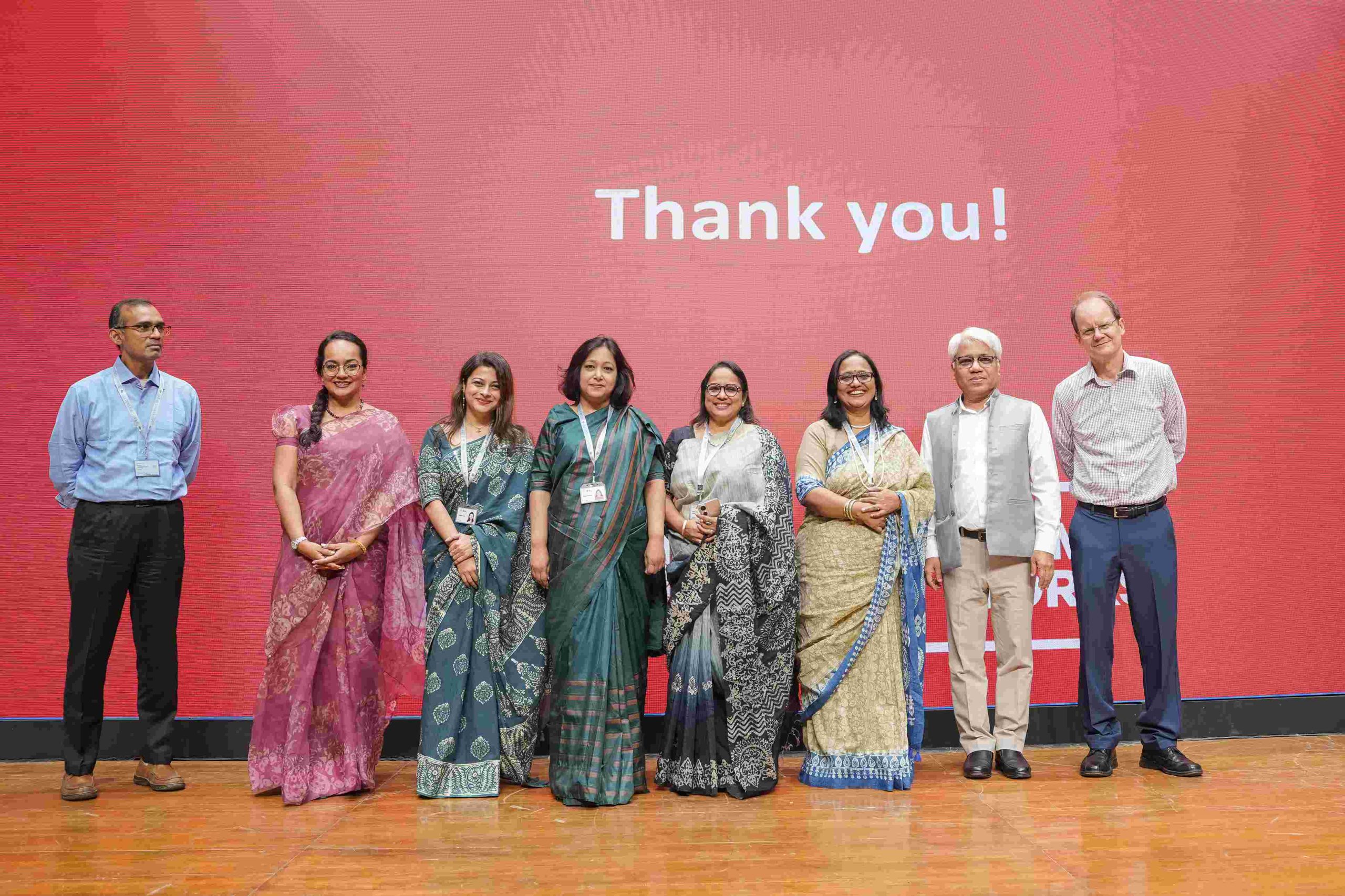With the launch of the Metaverse, startups are exploring entrepreneurial ventures in the virtual domain.

In the worldwide tech ecosystem, the word ‘Metaverse’ is becoming more popular than ever. Every year, thousands of new enterprises are launched, with the potential to disrupt the Metaverse. In the future, Metaverse startups will be at the forefront of transforming the digital world due to their highly engaging and immersive experiences. So, dig deep into some of the fastest-growing Metaverse startups out there and how they are changing the world around us.

Synthesis AI
Based in San Francisco, Synthesis AI aims to provide engineers with the tools they need to create experiences based on synthetic, data-driven digital representations of reality. Imagine being able to witness a sporting event from the perspective of a favourite athlete, engaging with lifelike avatars of friends, or physically experiencing items. To simulate the interactions of humans and things in 3D settings, all of these applications rely on computer vision AI. To develop these AI capabilities, massive amounts of high-quality data must be generated using synthetic data technologies and virtual humans. Synthesis AI has also just released HumanAPI, a tool that allows users to create large volumes of high-quality, labelled human photos. This will help in building AI models that will power the next generation of computer vision and Metaverse applications. Using HumanAPI, Synthesis, AI aspires to establish a new synthetic data paradigm that will eventually power the future of computer vision.
![]()
Madeium
Madeium, situated in Portland, Oregon has established an independent multi-blockchain environment for creative firms and industries, in contrast to how Meta and Microsoft envision the future of the Metaverse. The startup has already begun to create closed systems in an attempt to ‘control’ the Metaverse. The firm has created a peer-to-peer system that allows designers, influencers, startups, and new personal brands to access a system free of major corporate demands. According to Jesse Rademacher, co-founder and CEO of Madeium, Facebook has repeatedly proved that profits come before people at every stage of their business. “The future Madeium is creating is a pure concept for creatives and influencers themselves, with no outside interests or investors, that keeps the principles that are vital to creatives, who, by and large, are motivated by the ability to create and express themselves artistically,” he said. “This community-based strategy to democratising industries, peer-to-peer profit-sharing, and collective bargaining is intended to challenge corporate control of this developing arena.” Madeium’s ambition, he explained, is to carve out public space in an economic ‘collaboration mindset’ where independent makers may connect with one another and share technologies.

Epic Games
According to Jeff Mains, CEO of the Dallas-based Champion Leadership Group, the Metaverse gives the sense of a shared virtual platform that users may access via different devices and wander around in. “Long before Facebook’s buzzy demos depicting giant robots and digital clock excursions to ancient Rome, major firms were inventing the hardware and software that can be employed in this ‘Ready Player One’ scenario,” he said. Gaming firms have already established themselves in the market. Epic Games, the company behind the smash-hit video game, Fortnite, has expanded beyond its core shooting game to include communal activities such as dance parties and virtual music events. People pay to customise their avatars’ clothing and even create their own islands and games. Epic also owns Unreal, one of the most popular game engines, which is used to create apps and other visual effects such as TV show backdrops.

Decentraland
According to Isla Sibanda, an ethical hacker with Privacy Australia, the Ethereum blockchain powers Decentraland, a virtual reality network. Users may produce, interact with, and monetise content and apps as a result of this. Users can buy virtual land in the Metaverse, which they can then go to, build on, and monetise. “Decentraland is a platform for content creators, businesses, and individuals seeking a new artistic medium, commercial opportunity, or entertainment,” she explained. Decentraland’s gaming environment is divided into 90,601 different parcels, each represented by an NFT. Each plot of land is 16 square meters in size (virtually) and is located at various points on the map. Mana, Decentraland’s proprietary token, is used to make purchases.

Dapper Labs
Dapper Labs, a British Columbia-based company that created its own blockchain, Flow, has already teamed up with the NBA to issue NBA Top Shots, a collection of digital collectable video clips featuring basketball highlights. According to Brian Jackson, research director in the CIO practice at Info-Tech Research Group, it has comparable ventures in the works with the NFL and UFC and is clearly positioning itself as the platform for creating digital sports memorabilia. The NFTs it is developing could be more useful in a Metaverse where members wish to show their dedication to a community by investing in its equities. Dapper Labs is also behind the Genies platform, which is developing an NFT market for clothing digital avatars that can be used in several Metaverses. Dapper Labs has thus far concentrated on developing platforms that it can control. However, it has expressed interest in building NFTs for usage outside of its platform in a few circumstances.

Active Theory
According to Eddie Benson, a strategist working in Amsterdam-based Active Theory, a Metaverse builder for companies, “accessibility and inclusivity are fundamental to establishing any Metaverse environment.” Most people are unfamiliar with the concept of a Metaverse, which can be frightening in certain respects. “As creators of the Metaverse, we must choose technology and design that welcomes all,” he stated. “This includes people from all over the world with varying levels of technological know-how, internet connection, and, in many cases, older generation mobile devices.”

rooom
Hans Elstner launched a global startup based in Jena, Germany, in 2019. The firm’s core offering ‘experienceCloud’ is a one-stop-shop for developing, managing, and advertising interactive 2D, 3D, AR, and VR experiences. It is compatible with all desktop and mobile platforms. The wide product offerings of rooom’s experienceCloud’s are geared to meet the marketing and visualisation needs of a variety of sectors. These include eventCloud (for virtual events, exhibitions, conferences, and meetings), spaceCloud (for real estate, property, and museums), productCloud (3D products, product showrooms), and immerseCloud (for virtual events, exhibits, conferences, meetings, tours, guides, 3D books). For hybrid events like IFA in Berlin and global customers like Porsche, Deutsche Telekom, DHL, and E.ON, rooom’s eventCloud regularly hosts up to 200,000 people. The Global Eventex Award (twice), the Innovation & Excellence Award, and the German Innovation Award are just a few of the accolades rooom has received.

Novaquark
Novaquark is dedicated to bringing individuals from all over the world together to breathe life into their own worlds, one voxel at a time. The new-gen startup was founded in 2014 in Paris by Jean-Christophe Baillie, and its first game, Dual Universe, brilliantly demonstrates the power of voxels. Dual Universe is a large-scale, single-shard sandbox MMORPG set in a huge, uncharted galaxy that focuses on emergent gameplay with a player-driven economy, politics, trade, and conflict. Novaquark can make its first-person-based space simulation sandbox massively multiplayer online video game a trailblazer in this innovative and intriguing Metaverse paradigm with USD 21.1 million raised over six rounds.

Entropy
Antonio Furtado launched Entropy, a technology business focused on digital assets, in Mumbai, India in 2017. Entropy develops solutions to understand macro trends, emergent narratives, and the Metaverse by utilising crucial relationships and expertise. It provides ready-made and custom products, such as EntropyX, a powerful portfolio tracker for crypto enthusiasts, as well as solutions suited to customers’ needs, such as Metaverse adoption strategies for businesses.

Virtuleap
Virtuleap is a Lisbon, Portugal-based firm launched in 2018 by Amir Bozorgzadeh, Hossein Jalali, Roland Dubois, and Thomas Balouet to help raise attention levels and solve cognitive illnesses, disorders, and learning issues using neuroscience and virtual reality. The team has developed a library of virtual reality games produced by neuroscientists to assess and train a variety of cognitive capacities and has made the data available through its enterprise platform. Virtuleap has raised a modest USD 1.1 million in funding over seven rounds, working with prominent institutions such as the VA Health Care System and the Pacific Brain Health Center to validate its solution as an effective diagnostic and treatment for attention deficit and cognitive decline.

OpenSea
OpenSea is the first and largest peer-to-peer marketplace for crypto products, which contains collectables, gaming equipment, and other virtual commodities backed by a blockchain. In short, it’s like the eBay for crypto assets. The NYC-based firm was founded in 2017 by Alex Atallah and Devin Finzer, and its team includes alumni from Stanford, Palantir, and Google. YCombinator, Founders Fund, Coinbase Ventures, 1Confirmation, and Blockchain Capital have all invested in OpenSea, which has raised a total of USD 127.2 million in funding over eight rounds.
In conclusion, it can be said that these are exciting times for startups working to explore the Metaverse. It is a concept that blends virtual reality (VR), augmented reality (AR), blockchain technology, non-fungible tokens (NFTs), and a lot of code to create a virtual world that can someday replace the internet. Whatever direction it takes, the Metaverse is here to stay in some way or the other.















